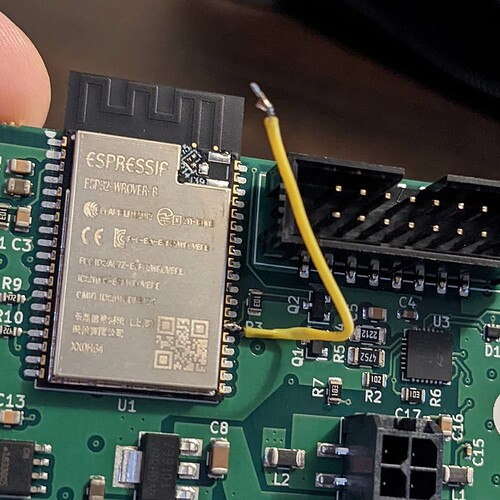Here is how to do it people. It’s the standard esp32 “short pin IO0 to GND” during flash. I just soldered a little wire to IO0 of the esp32, then pressed the other end of the wire to the esp32 metal case (GND). I haven’t flashed new firmware to it yet but I have used the following command to download the firmware stored in flash : esptool.py -p /dev/cu.usbserial-110 read_flash 0x0 0x800000 fw-backup-8M.bin
